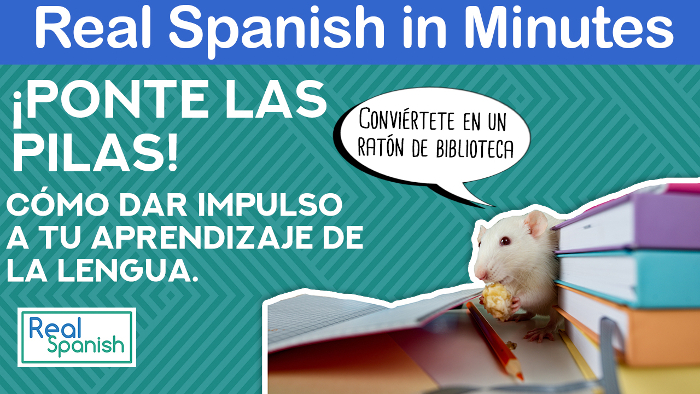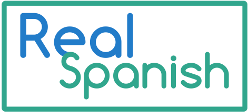
The video above is about the importance of reading to improve your Spanish. You’ll get some useful advice on how to choose your reading material. You’ll also learn how the Día del Libro, also known as the Day of Sant Jordi in Catalonia, is celebrated in Spain on April 23rd each year. The free pack of supplementary materials will help you get the most out of the video. For example, you can refer to the transcription before, while, or after viewing the video, as many times as necessary until you can understand and distinguish every word. We suggest you read parts of the text aloud, chiming in with Carmen from time to time to improve your pronunciation and intonation. Then you can read the suggestions on how to choose material for independent extensive reading.
Sign up or login above to get the rest of the lesson materials.
If you only want to listen to the audio, you can get it in Soundcloud.
Read extensively to improve your vocabulary and broaden your cultural knowledge
According to applied linguists such as Stephen Krashen, the best way to improve your vocabulary is to read a lot, just slightly above your present level. According to Paul Nation, a leading expert on vocabulary development in a second or foreign language, to be able to get meaning from what you read, and to be able to figure out the meaning of most of the words you don’t know, you should already know at least 95% of the words in a text.

To check the readability of a text, read a page without looking anything up but underlining or highlighting each new word. Count the number of words in several lines. Average out the number of words per line then multiply it by the number of lines on the page. Then count each underlined or highlighted word once, no matter how many times it appears on the page and whether it appears in only one form or several (e.g., mentira, mentir, mentiroso/a).
Then calculate the percentage by dividing the number of known words by the total number of words. If this comes to more than 5%, this material will be hard going. Struggling with text is not motivating, so save it for later and look for something more accessible for now.
You can read whatever interests you: novels, biographies, magazines, press articles, children’s books, graphic novels, practical or informational books or articles on cooking or gardening or the climate crisis… But read a lot!
The first time you meet a new word, decide if it is essential to your general understanding of what you are reading. If not, skip it! It will surely come up again, and each time it does you will get a clearer idea of its meaning. Alternatively, if you don’t like ambiguity, use a reading app that has a built-in bilingual dictionary. Click on the word, and it will pop up with a translation. Sometimes you will encounter a known word that the writer is using in a more figurative or idiomatic sense. For example, if you know the word leche but you don’t understand how the writer is using it, click on the word and you’ll get not only a definition but also various expressions such as tener mala leche (to be bad-tempered) or estar de mala leche (to be in a bad mood). (Check out our post on the many ways of using leche in Spanish.)

If you can find audiobooks, so much the better… you will improve your listening comprehension too! You can also look for a good text-to-speech app if you are reading electronically. Once you know the text well you can read parts of aloud it aloud along with the audio; this will help your pronunciation. You might feel embarrassed to do this in a bus or in a café, but do it at home!
Do you have any recommendations for independent reading in Spanish? Tell us below!
Check out our other blog entries related to this topic:
Why learn Spanish online?
Complement your online courses with language exchanges
Real Spanish: online Spanish courses and mini-lessons for people who are serious about improving their Spanish.
If you have other comments, questions or suggestions, we’d love to hear from you!
View all our materials and try some free sample lessons.

0 responses on "«Ponte las pilas!»: Improve your vocabulary by reading extensively"